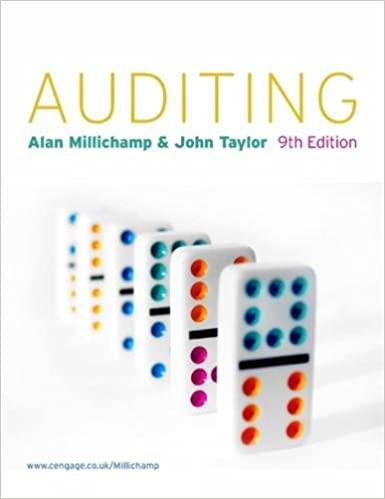

4. The University of Canterbury Student Association (UCSA) wants to find out the average weekly expenditure of undergraduates at the university, whether they are living away from home or not, and if a student is working while studying. The university is supplying ages, gender, whether they are a domestic or an international student and the number of years at university. (a) Clearly explain the difference between Missing Completely at Random (MCAR), Missing at Random (MAR), and NonIgnorable NonResponse (NINR) as types of nonresponse. (b) Give one way the UCSA can minimise the unit nonresponse and one way to minimise nonresponse to weekly expenditure. (C) Of the 800 questionnaires emailed to students 758 questionnaires were returned. In those 758 questionnaires returned; i. 726 had a response for whether they are living away from home or not; ii. 580 had a response for whether they were working or not; and iii. 447 had a response for their weekly expenditure. For EACH of i. ii. iii. above, give two possible examples of nonresponse, one MAR and one NINR, that might result in a student not answering that ques- tion. That is, you provide six examples of student nonresponse, three MAR and three NINR. You can repeat a mechanism for a type of nonresponse for dif- ferent questions, but you must clearly explain why it would lead to nonresponse for that particular question. (d) Give an example as to how MCAR nonresponse could occur. You may wish to consider unit nonresponse for your answer. (e) For the 32, 178 and 311 item nonresponses to questions i., ii. and iii. above, which imputation method would you use to impute the missing values? Explain why you chose each method. You can use the same imputation method for more than one question, but you need to justify it separately for each. 4. The University of Canterbury Student Association (UCSA) wants to find out the average weekly expenditure of undergraduates at the university, whether they are living away from home or not, and if a student is working while studying. The university is supplying ages, gender, whether they are a domestic or an international student and the number of years at university. (a) Clearly explain the difference between Missing Completely at Random (MCAR), Missing at Random (MAR), and NonIgnorable NonResponse (NINR) as types of nonresponse. (b) Give one way the UCSA can minimise the unit nonresponse and one way to minimise nonresponse to weekly expenditure. (C) Of the 800 questionnaires emailed to students 758 questionnaires were returned. In those 758 questionnaires returned; i. 726 had a response for whether they are living away from home or not; ii. 580 had a response for whether they were working or not; and iii. 447 had a response for their weekly expenditure. For EACH of i. ii. iii. above, give two possible examples of nonresponse, one MAR and one NINR, that might result in a student not answering that ques- tion. That is, you provide six examples of student nonresponse, three MAR and three NINR. You can repeat a mechanism for a type of nonresponse for dif- ferent questions, but you must clearly explain why it would lead to nonresponse for that particular question. (d) Give an example as to how MCAR nonresponse could occur. You may wish to consider unit nonresponse for your answer. (e) For the 32, 178 and 311 item nonresponses to questions i., ii. and iii. above, which imputation method would you use to impute the missing values? Explain why you chose each method. You can use the same imputation method for more than one question, but you need to justify it separately for each








